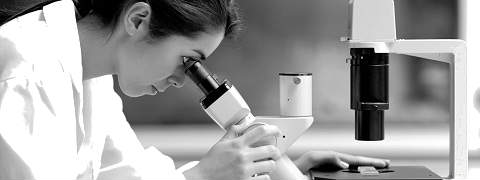Stem Cell Innovations for Chronic Kidney Disease
INTRO:
Maladie rénale chronique (MRC) est un problème de santé mondial, affectant des millions de personnes dans le monde. Malgré les progrès des traitements médicaux, there is currently no cure for CKD, and patients often require dialysis or kidney transplantation to survive. Stem cell innovations have emerged as a promising approach for treating CKD, offering the potential to regenerate damaged kidney tissue and restore kidney function.
The Promise of Stem Cells in Kidney Regeneration
Stem cells are unspecialized cells with the ability to differentiate into a variety of specialized cell types, y compris ceux trouvés dans les reins. This makes them an attractive source for kidney regeneration, as they could potentially replace damaged nephrons, les unités fonctionnelles du rein. En introduisant des cellules souches dans le rein, it may be possible to repair damaged tissue and restore kidney function.
Harnessing Stem Cells to Repair Damaged Nephrons
One approach to thérapie par cellules souches for CKD involves harnessing the body’ses propres cellules souches. Cellules souches mésenchymateuses (MSC), which are found in bone marrow and other tissues, have been shown to have regenerative properties and can be isolated and expanded in the laboratory. These MSCs can be injected into the kidney, where they may differentiate into kidney cells and help repair damaged tissue.
Considérations éthiques dans la thérapie par cellules souches pour l'IRC
Comme pour tout nouveau traitement médical, ethical considerations must be addressed in thérapie par cellules souches pour IRC. One concern is the potential for immune rejection if the stem cells are not compatible with the patient’le système immunitaire. Another ethical issue is the use of embryonic stem cells, ce qui suscite des inquiétudes quant à la destruction d’embryons humains.
Études précliniques: Ouvrir la voie aux essais cliniques
Des études précliniques sur des modèles animaux ont montré des résultats prometteurs pour thérapie par cellules souches dans la MRC. These studies have demonstrated that stem cells can effectively repair damaged kidney tissue and improve kidney function. These findings have paved the way for clinical trials to evaluate the safety and efficacy of thérapie par cellules souches chez les humains atteints d'IRC.
Essais cliniques: Assessing Safety and Efficacy
Plusieurs essais cliniques sont actuellement en cours pour évaluer l'innocuité et l'efficacité de thérapie par cellules souches pour IRC. Ces essais évaluent différents types de cellules souches, including MSCs and induced pluripotent stem cells (iPSC), as well as different methods of delivery. The results of these clinical trials will provide valuable information on the potential of thérapie par cellules souches for treating CKD.
Cellules souches mésenchymateuses: A Promising Source for CKD Treatment
Cellules souches mésenchymateuses (MSC) have emerged as a promising source for thérapie par cellules souches dans la MRC. MSCs are easily accessible from bone marrow and other tissues, and they have been shown to have regenerative and immunomodulatory properties. Clinical trials are currently evaluating the safety and efficacy of MSCs for treating CKD, avec des premiers résultats montrant des résultats prometteurs.
Cellules souches pluripotentes induites: A Versatile Option for Kidney Repair
Cellules souches pluripotentes induites (iPSC) are another potential source for thérapie par cellules souches dans la MRC. Les iPSC sont générées à partir de cellules adultes, comme les cellules de la peau, and they can be reprogrammed to become pluripotent, meaning they have the potential to differentiate into any type of cell in the body. This versatility makes iPSCs a valuable source for kidney regeneration, as they could potentially be used to create patient-specific kidney tissue for transplantation.
Challenges and Future Directions in Stem Cell Therapy for CKD
Malgré la promesse de thérapie par cellules souches pour IRC, il y a encore des défis à relever. One challenge is the low efficiency of stem cell differentiation into kidney cells. Another challenge is the potential for stem cells to form tumors if they are not properly controlled. Future research will focus on improving stem cell differentiation efficiency and developing safer and more effective stem cell delivery methods.
Stem Cell-Derived Organoids: A Novel Approach to Kidney Disease
Stem cell-derived organoids are three-dimensional structures that mimic the structure and function of organs. They can be generated from stem cells and used for disease modeling, tests de dépistage de drogues, et ingénierie tissulaire. Kidney organoids have been developed and used to study CKD and identify potential new treatments. They offer a promising approach for developing personalized therapies and understanding the underlying mechanisms of CKD.
Bioengineering Scaffolds for Enhanced Stem Cell Function
Bioengineering scaffolds provide a supportive environment for stem cells to grow and differentiate. They can be designed to mimic the natural extracellular matrix and provide physical and chemical cues that guide stem cell behavior. Bioengineered scaffolds have been used to improve the efficiency of stem cell differentiation into kidney cells and enhance their regenerative potential.
Médecine personnalisée: Tailoring Stem Cell Therapy to Individual Patients
Personalized medicine aims to tailor medical treatments to the individual characteristics of each patient. Dans thérapie par cellules souches pour IRC, personalized medicine involves using patient-specific stem cells or modifying stem cells to match the patient’le système immunitaire. This approach can improve the safety and efficacy of thérapie par cellules souches and ensure that it is tailored to the unique needs of each patient.
AUTRE:
Stem cell innovations offer a promising approach for treating chronic kidney disease. En exploitant le potentiel régénérateur des cellules souches, it may be possible to repair damaged kidney tissue and restore kidney function. Ongoing research is focused on improving stem cell differentiation efficiency, developing safer and more effective delivery methods, and personalizing thérapie par cellules souches au patient individuel. Alors que le domaine continue de progresser, thérapie par cellules souches a le potentiel de révolutionner le traitement de l’IRC et d’améliorer la vie de millions de patients dans le monde.




